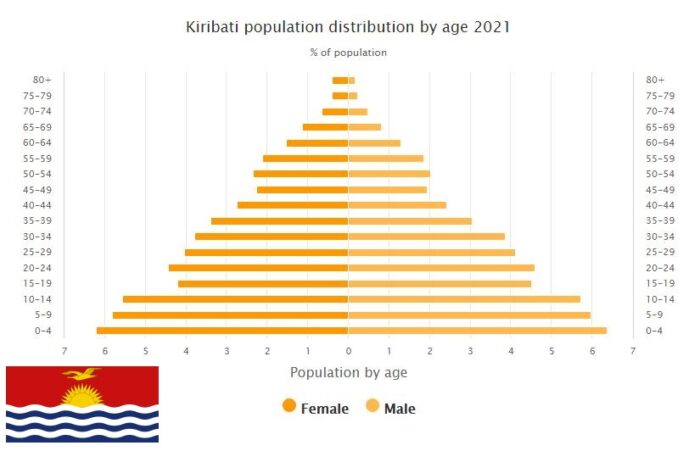After lengthy negotiations, residents received a £ 19 million sterling compensation from the UK government. In 1957, as part of its nuclear disarmament, the British government detonated 3 hydrogen bombs near the island of Christmas.
In 1975, the residents of the Alice Islands disassociated their archipelago from the community with Gilbert. This was done with reference to the significant ethnic, historical and cultural differences according to the Melanesians at Gilbert. Tuvalu now began a separate independence process and in 1978 gained independence.
The people of the Gilbert Islands gained their independence on July 12, 1979, proclaiming the Republic of Kiribati – “Gilbert” on the local 13-letter alphabet.
- ABBREVIATIONFINDER.ORG: What does KI stand for? In the field of geography, this two letter acronym means Kiribati. Check this to see its other meanings in English and other 35 languages.
The production of cobra and fisheries is the basis for the country’s exports, as the low land does not allow for greater agricultural production. Fishing is carried out under agreements with fleets from major fishing nations, Japan, South Korea, the United States and Taiwan.
Kiribati also has high expectations of mineral extraction from the ocean floor. The manganese nodules found in the ocean off Kiribati are considered to be the best occurrences in the world.
In 1986, the country made contact with the IMF, and was recognized by the UN as one of the world’s poorest countries. This status gives it a number of credit and trade benefits.
Population 1996
According to Countryaah.com, the population of Kiribati in 1996 was 77,612, ranking number 199 in the world. The population growth rate was 1.430% yearly, and the population density was 95.9543 people per km2.
